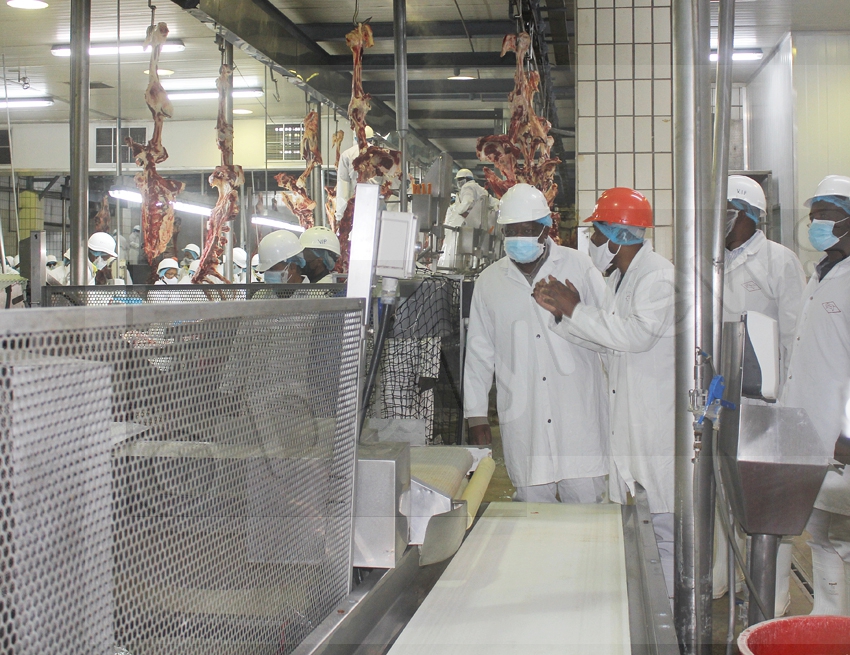Schools run small businesses under two categories
13 Jul 2021
Parliament has been informed that schools run ‘small business’ through the Business Subjects Curriculum and Parent Teacher Association fundraising initiatives.
Assistant Minister of Basic Education, Ms Nnaniki Makwinja, said the Junior Certificate Programme had a Business Studies component, which required learners to take business subjects such as Commerce and Office Procedure as well as Commerce and Accounting as part of the school curriculum requirements.
Ms Makwinja said learners who took such subjects were required to establish and run ‘mini enterprises’ in order to acquire the necessary entrepreneurial skills.
In addition, she said the Business Studies, for both the Junior Certificate (JC) and Botswana General Certificate of Secondary Education (BGCSE) levels, required learners to establish and run profitable mini enterprises.
She also indicated that schools formed entrepreneurial or business clubs with the aim of exposing learners to entrepreneurial skills, adding that such clubs also ran small businesses.
Again, she said schools also operated tuckshops as a fundraising initiative in order to fund activities such as prize giving initiatives as well as minor maintenances.
The Business Studies programme, she said, was informed by the National Policy on Education of 1977, Revised National Policy on Education (RNPE) of 1994 and the Curriculum Blueprint: Ten Years Basic Education Programme of 1995.
She noted that RNPE as per Government Paper No. 2 of 1994, was approved by the National Assembly on March 7, 1994. In that regard, she said the Ten Years Basic Education Programme Curriculum Blueprint, was therefore a product of RNPE.
“These policy documents called for the establishment of an education system that will prepare learners for the necessary skills needed to function in the 21st century to address the needs of an economy that seeks to diversify from agriculture and mining,” she said.
Further, she said the RNPE policy document provided sufficient guidance to regulate operation of ‘small businesses’ that supported effective curriculum delivery.
She stated that PTAs operated small businesses to address minor funding gaps in the day to day running of schools such as the repair of windows, doors, purchase of domestic supplies and trophies.
She further stated that funds raised through tuckshops by PTA were all ploughed back in the school hence PTAs had not been applying for trade licenses to run tuckshops because proceeds benefitted learners.
On the Trade Act of 2019 she explained that such regulated all small businesses, except those run by schools in order to support student learning, hence the ministry advised PTAs to liaise with the licensing authority to ensure they were not in breach of the licensing requirements.
She stated that officers from investment, trade and industry as well as local government and rural development ministries were involved in the business subjects syllabi development process in order to advise on such matters, adding “they are members of subjects panels for business subjects.”
The assistant minister also indicated that small businesses run by schools in order to support learning were not required to be licensed while the Trade Act of 2019, only regulated businesses that were run commercially, hence PTAs would need to seek guidance from Ministries of Investment, Trade and Industry and Local Government and Rural Development on licensing requirements for PTAs.
Ms Makwinja also stated that PTAs were empowered by their respective draft constitutions and the National Guidelines on PTA activities to run such small businesses with the sole objective of supporting schools.
Thus, she said PTAs had bank accounts and that school heads provided oversight on the operation of small businesses in schools.
In addition, she said for a PTA executive committee to start any ‘small business’ venture in a school, it sought mandate from the general membership of the association which included the school head and deputy as ex officio members.
Maun East MP, Mr Goretetse Kekgonegile had asked the minister to brief Parliament on conditions in which schools housed smallscale businesses in their premises.
In particular, he wanted the ministry to state the legislation upon which such businesses operated in schools and any intention of legislating such existence.
Mr Kekgonegile also wanted to know how such plans involved the Ministries of Investment, Trade and Industry and Local Government and Rural Development and how PTAs were mandated to collaborate with school management in overseeing the presence of small businesses in schools. Ends
Source : BOPA
Author : BOPA
Location : GABORONE
Event : Parliament
Date : 13 Jul 2021



